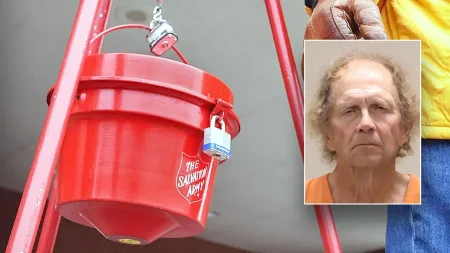In recent weeks, the issue of child sexual exploitation by so-called grooming gangs has re-entered the national spotlight in Britain, igniting fresh debates and government responses after years of simmering controversy. On the surface, it involves an already grievous scandal—but layered under it are societal sensitivities, cultural tensions, and political posturing that make addressing the issue fraught with complexity.
### A Grievous History Revisited
At the heart of the matter are “grooming gangs,” networks of men—many of whom have been identified as being of British Pakistani heritage—that sexually exploited and abused predominantly young white girls during the 2000s and early 2010s. Several towns across the country became infamous for hosting such horrors, with devastating examples like the Rotherham scandal, where over 1,400 children were victimized over a decades-long period. Despite existing local and national inquiries, such as the exhaustive seven-year investigation led by Professor Alexis Jay, which concluded in 2022, the ghosts of these atrocities continue to haunt public discourse.
Professor Jay’s inquiry laid bare the systematic failings of authorities, from police to social services, in protecting these vulnerable youth. Victims and their families were persistently ignored, dismissed, or worse, treated with indifference and prejudice. Some police officers referred to the child victims as “tarts” and described their exploitation as a “lifestyle choice,” while other officials hesitated to act out of fear that highlighting the involvement of men from specific ethnic backgrounds could be perceived as racist. This failure of institutions added layers of betrayal to an already tragic ordeal.
This week, the government made a commitment to take new steps, announcing a series of investigations aimed at addressing what many see as unresolved questions about the scope, scale, and societal dynamics of such criminal activities. While these latest initiatives aim to provide a clearer picture—and perhaps bring belated justice—critics argue they are long overdue.
### What’s Driving the Renewed Attention?
The timing of these announcements is significant, coming less than a month after billionaire Elon Musk used his social media platform, X (formerly Twitter), to draw attention to grooming gangs, albeit in a sensationalized and incendiary manner. Musk’s posts, some of which falsely accused public officials like opposition leader Keir Starmer of enabling and even being complicit in what he controversially termed “the rape of Britain,” pointed fingers at the British Labour Party and reignited long-standing debates about race, immigration, and community accountability.
Although Musk’s comments were riddled with inaccuracies and racist undertones, they struck a nerve, amplifying public demand for action. By carelessly intermingling truths with inflammatory allegations, his claims stirred emotions and prompted significant political commentary across the spectrum. This pressure, coupled with growing calls from lawmakers, has pushed the Labour-led government into taking a more proactive stance on the issue.
### A Closer Look at the New Measures
On Thursday, Yvette Cooper, Britain’s home secretary, addressed Parliament to outline the government’s response. She announced the commissioning of a rapid three-month audit to assess the “scale and nature of gang-based exploitation” across the country. This audit will delve into demographic data, including the ethnicity of perpetrators and their victims, stoking sensitive discussions about race and culture. Cooper also emphasized the importance of understanding the “cultural and societal drivers” behind these crimes, particularly within different ethnic and immigrant communities.
In addition to the national audit, the government pledged to help fund up to five local inquiries aimed at ensuring justice for victims and accountability for institutions that may have failed them. For these investigations, certain towns, such as Oldham, will be a focus, with others yet to be determined. These inquiries will reportedly revisit cases where no charges were brought to reexamine evidence and assess whether justice was prematurely denied.
Furthermore, police chiefs have been ordered to revisit past investigations related to grooming gangs and reopen cases where necessary, signaling a more comprehensive and dynamic approach to tackling unresolved crimes. Cooper underscored the importance of this initiative in addressing any gaps from earlier investigations, particularly those marred by insufficient action or negligence.
### A Divisive Conversation
Child sexual abuse is, sadly, not uncommon in Britain. Grooming gangs account for just a fraction of cases—of the 115,489 child sexual abuse crimes recorded in England and Wales in 2023, only 3.7 percent (4,228 cases) involved groups of two or more perpetrators. Of these, a significant number were committed by family members or relatives at home. Yet, the disproportionate attention paid to grooming gangs—specifically those of Pakistani heritage—points to the charged intersection of race, immigration, and criminality in the public imagination. While many rightly emphasize the horrific nature of grooming gang crimes, critics also caution against the risk of demonizing entire communities based on the actions of a few.
Some argue that previous criticism of institutional failures highlights the fear officials often express regarding race’s role in these investigations. Stories from the 2010s revealed how authorities hesitated to act decisively, worried they’d be accused of racism for drawing attention to the racial identities of the perpetrators. Critics say this hesitation allowed abuse to continue unchecked for years.
### Political Pressures & Skepticism
Some have voiced skepticism about whether the government’s response goes far enough. Chris Philp of the Conservative Party dismissed the Labour government’s proposal for five local inquiries as “totally inadequate,” highlighting the potential for widespread, unresolved cases in other affected towns. “What about the rest—don’t they matter?” he asked publicly.
Meanwhile, Professor Alexis Jay—whose far-reaching inquiry into child sexual abuse concluded in 2022—has argued against an entirely new national investigation. Instead, she called for the government to implement the recommendations her inquiry already provided. Her stance underscores a common frustration: repeated investigations often gather dust unless they’re directly acted upon.
Similarly, Louise Casey, another prominent voice on this matter, has been commissioned to undertake a new audit. Casey has previous experience investigating child sexual abuse in the town of Rotherham and has repeatedly advocated for holding authorities accountable at local levels.
Beyond political circles, Labour lawmaker Sarah Champion proposed a five-point plan that significantly overlaps with the government’s current approach. She emphasized the need for local inquiries paired with national audits to ensure no stone is left unturned and that cases yet to be uncovered receive attention. Her call highlights a shared urgency across party lines, even as the specifics of action spark debate.
### Lessons from the Past, Challenges Ahead
Ultimately, this renewed drive for accountability offers both hope and challenges. The hope lies in finally delivering justice for victims while addressing some of the root cultural and institutional forces that enable such crimes. The true test, though, will be in whether this burden is approached holistically, without enabling new scapegoating or stigmatization.
The grooming gang controversies of the past few decades mark a failure of systems meant to protect the most vulnerable. For communities affected, the damage extends beyond the primary harm of abuse to include a corrosive mistrust in law enforcement and governance. For multiethnic Britain, the challenge lies in addressing vile acts committed by individuals without fueling stereotypes or inflaming racial strife.
While old wounds are reopened, one thing becomes clear: justice and reform cannot depend indefinitely on inquiries alone. Action, and not just reassessment, will define how this chapter in British history is ultimately written. For now, the government’s willingness to confront these failings publicly marks a step in the right direction—even as many urge they hasten their climb.











